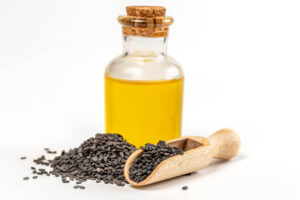Leading a fit and healthy lifestyle entails more than just making drastic changes and forming new habits; it also entails paying attention to your daily routine. Your daily routine and rituals have a profound influence on you, even if they are as simple as waking up, bathing, eating, and brushing your teeth! Following certain daily routines, according to Ayurveda, may help one lead a healthier life.
Ayurveda encourages preventative steps to keep your health in balance. It’s a way of life, a regular effort in our everyday routines. With the help of this ancient wisdom, we may adopt dietary and lifestyle choices that will lead to health, longevity, and realizing our greatest potential in life! Ayurveda says that you should find a balance between your body, mind, and soul because all three are connected.
After all, an imbalance in our work-life scale, as well as poor eating and drinking habits, has brought us closer to a variety of lifestyle-related ailments. It is apparent that adopting Ayurvedic lifestyle adjustments must be our go-to approach for living a happier and healthier life.
The stability of the Tridoshas is disrupted and they intensify in the body as a result of poor food and lifestyle choices. Vitiated Tridoshas disrupt the stability of Dhatus and Malas, creating vitiation that manifests as many ailments in the body. Thus, an individual’s health is determined by the stability of the Doshas, Dhatus, and Malas.
The following are some Ayurvedic Life-Changing Habits to Practice for a Healthy You:
1. Wake Up in Brahmamuhurta
Ayurveda recommends that the ideal time to wake up is the Brahmamuhurta. This refers to two hours before sunrise. The reason for this is to give yourself an optimal gap, i.e., time to cleanse and nourish your body before you begin your day. Don’t worry if you haven’t gotten there yet; gradually practice getting up early and it will become a habit.
It is best to get up before sunrise since the air is cleaner at that time. The quantity of oxygen available at this hour is at its peak. The effect of early morning sun rays and a pollution-free atmosphere allows vital molecules to be produced by the body, resulting in the body remaining energized.
2. Splash Some Water on Your Face
The first thing you should do when you get up is splash water on your face. Splashing water in the eyes is said to be an effective eye routine. Use only room temperature water that is not too hot or cold.
3. Do Oil Pulling (Before Brushing Your Teeth)
Similar to tongue scraping, removing toxins and germs from the mouth contributes to the detoxification of the body. It can cure a wide range of ailments, from digestive issues to heart disease.
Consider this:
Swish 1 to 2 teaspoons of cold-pressed organic sesame or coconut oil around in your mouth vigorously like mouthwash. Spit the saponified oil out and discard it after approximately 15 to 20 minutes. During this time, you can ease your body urges or prepare your breakfast.
4. Scrape the Tongue
After oil pulling, brush your teeth, and don’t forget to scrape the tongue clean. This oral hygiene procedure has been shown to eliminate toxins from the tongue. It is more difficult to taste food if your taste buds are coated with germs and plaque. This usually results in going overboard on salt and sweets, which may contribute to overeating.
Thus, after cleaning your teeth, place the tongue scraper as far back on your tongue as you are comfortable with. Slide the scraper from the back of your tongue to the tip, using strong yet moderate pressure. Rinse and clean the scraper, then continue until no chalky residue remains. It takes 1 to 2 minutes.
5. Begin the Day with Warm Water
Beginning the day with a glass of lukewarm water is an old Ayurvedic tradition that is gaining popularity in the West. Drinking warm water elevates your body temperature, which speeds up your metabolism and helps you with proper digestion and losing excess fat.
6. Avoid Standing While Drinking Water
This is possibly one of the most crucial healthy eating habits to develop. It is best to avoid drinking and eating while standing. Standing and drinking disrupt the body’s fluid balance, which may lead to a higher buildup of fluids in the joints, causing arthritis. Drinking water while standing also has a harmful impact on your kidneys.
7. Exercise
Ayurveda suggests beginning the day with mild exercise and asanas. They aid in enhancing blood flow in the body as well as providing flexibility. You may walk, exercise, or practice yoga, but be sure that your workout uses just half of your whole body strength. If you work out more than you need to, you might get tired and weak, which defeats the purpose of working out.
Surya Namaskar, aerobics, yoga, and other forms of regular exercise build physical strength and immunity. All the body’s pathways are cleaned, blood circulation improves, and waste material is eliminated from the body. Excess fat is also eliminated.
8. Perform Pranayamas (Breathing Exercises)
Deep diaphragmatic breathing expels carbon dioxide from the lungs and enhances oxygen intake, supplying your body with more vital energy. By increasing metabolism and promoting peristalsis, deep belly breathing massages your internal organs and helps digestion.
Consider this:
Kapalabhati is a breathing technique that involves pulling in your stomach muscles while exhaling forcefully. This is thought to increase the Agni, or digestive fire, and may be a good workout for your stomach.
9. Do Meditation
For a clear and focused mind that relieves mental and physical stress, meditation is a must. Research conducted at UC San Francisco separated 47 overweight women into two groups. Only one group got “mindful eating” instruction and meditated for 30 minutes every day. During the four-month study, the women who meditated lost more than a pound of belly fat and had much lower levels of the stress hormone cortisol, while the women in the control group gained weight.
Meditation may range from simple breath awareness to moving meditation or yoga. Choose the ones that speak to you and stick to them. The more practice you put in, the simpler it will become. In the advanced stages of meditation, you can seek higher spiritual goals as well.
10. Perform Abhyanga
Following yoga and meditation, the body cleansing process begins. Ayurveda stresses body oiling since no moisturizer can substitute it. If you don’t have time to massage yourself every day, try to do it at least three times a week in the winter and twice a week in the summer.
It is necessary to massage the whole body, but if you are short on time, you should massage these five body regions at the very least. These are the naval, the soles of the feet, the head, the ears, the hands, and the elbows.
Oiling should preferably be done before having a bath, and you may use any oil for this procedure, including olive oil, coconut oil, mustard oil, and sesame oil. It makes the skin healthy and beautiful. It improves cutaneous blood circulation. Toxic compounds are expelled from the body via perspiration, and the skin becomes wrinkle-free.
11. Perform Nasya
Putting 2-3 drops of warm and then cooled mustard or sesame oil in the nostrils every morning protects against the head, eye, and nose infections. Your vision improves, and your hair becomes long, thick, and black. It helps to prevent premature hair loss and graying. After Nasya, you should take a soothing bath.
12. Drink Ginger Tea and Warm Water
Cold water might really impair your digestion. Drink plenty of warm water and ginger tea throughout the day and with meals instead. Ginger tea also aids digestion by increasing Agni (digestive heat).
Consider this:
Begin with one cup of ginger tea in the morning and gradually increase your consumption to two to four cups each day.
The most crucial part of keeping the body healthy is the food. As a result, the next points will be on food and eating habits.
13. Incorporate the Six “Tastes” into Every Meal
Ayurveda considers the six flavors to be sweet, sour, salty, bitter, pungent, and astringent. Every fruit, vegetable, grain, nut, and legume has a distinct “flavor,” or a mixture of several. In an ideal world, you would include them in every meal.
Consider this:
Keep it easy and sprinkle an Ayurvedic spice mix with tastes like coriander, ginger, mustard, turmeric, cinnamon, and cayenne pepper over your meals. It also helps to choose whole foods and to make sure your meals have a rainbow of colors.
14. Avoid Eating If You are Feeling Very Emotional
When you’re occupied with strong emotions, chances are you’re not paying attention to what you’re eating. This may cause poor dietary choices, overeating, poor digestion, and meal dissatisfaction. Before taking up your fork, wait for the storm to pass.
Breathe deeply and visualize letting the sensations fade with each breath. Repeat until you feel calm and in control. After that, eat something.
15. Take Your Time When Eating
The digestive process begins with chewing, thus chew your meal thoroughly. Your salivary glands create digestive enzymes when you chew, which aid in the breakdown of your meal. This allows for improved food digestion and allows the digestive enzymes in your mouth to perform their job effectively. Also, chewing for a longer amount of time also allows your stomach more time to indicate your brain that you’re full, keeping you from overeating. If your meal is not digested properly, it may cause a slew of digestive issues, gastrointestinal troubles, and even weight gain.
Try this: Before swallowing, chew your meal until it is as mushy as possible. Instead of rushing through your meal, take your time.
16. Eat in Silence
Don’t get me wrong; there’s nothing like enjoying a delicious lunch with friends and family. But try eating in silence every now and then. When you do this, you enjoy your food more and can hear your body’s signal that you’re full, which helps avoid overeating and leaves you feeling more satisfied after your meal.
Consider this:
With mindful eating, concentrate on the aromas of your meal and zoom in on the sensations and tastes. Take your time, be grateful for what nature has to offer, and savor every bite.
17. Eat Seasonally Appropriate Foods
Always pick foods according to the season. It is a common piece of advice, and it’s a terrific healthy eating habit to instill in your life.
Foods like Gud (jaggery) and ghee are naturally warm, so they are best taken in the winter. Curd, on the other hand, has a cooling effect. If consumed throughout the winter, they may worsen a cold by producing mucus in the throat. Consume seasonal fruits at all times. Good eating habits are essential for maintaining a healthy mind and body.
18. Do Not Overeat or Eat Right After a Full Meal
You must know where to stop and never eat without real hunger. Try to eat light Sattvik foods. Seasonal foods, fruits, vegetables, dairy products, nuts, seeds, oils, and ripe vegetables are prioritized in the Sattvik diet. Eating Sattvik food regularly helps to detoxify your body of the toxins accumulated by pollution in the environment and junk food consumed outdoors. Healthy eating habits may help you feel physically and mentally active.
19. No Distracted Eating
Avoid eating while watching television, talking on the phone, or reading the newspaper. According to Ayurveda, you are alive because you have food on your plate; therefore, it should be treated with the highest care. Distracting surroundings impair your body’s capacity to digest what you’ve consumed.
20. Eat Your Meals Sitting Down
Eat your meals sitting down at all times. Distracted eating is frowned upon in Ayurveda; one must chew their meal thoroughly. Put all of your worries and commitments aside and consume the meal. Sitting down keeps you from being distracted and directs your focus to what is on the plate. Several specialists have also suggested that while sitting and eating, your posture is excellent for easy digestion and the prevention of gastrointestinal disorders. Also, eating in a suitable sit-down setting shows respect for the food. The concept of “Sukoon” is also highly essential in Ayurvedic dietary practice. “Sukoon” basically translates to pleasure, contentment, and fulfillment, all of which may be attained while sitting and eating.
21. Do Not Pair Foods Carelessly
According to Ayurveda, certain food combinations disturb the normal functioning of the gastric fire, upset the balance of the doshas, and lead to problems like indigestion, fermentation, putrefaction, and gas formation. Some of the incompatible combinations are milk-banana, yogurt and sour fruits, eggs-milk, and honey-ghee.
22. Sleep Well
Except in the summer, 6–8 hours of sleep is required at night in all seasons. In the summer, one should rest for 1-2 hours during the day and at night since the heat causes the body to lose water and energy. A nap during the day replenishes this. Physical and mental tiredness is relieved by getting enough sleep, and digestion is enhanced, injecting fresh vitality into the body.
Do You Know Some More Life-Changing Habits I Missed? Let Me Know in the Comments Below. Hope These Habits Transform Your Health Physically, Mentally, and Spiritually…

























Nicely presented. Have to go through with time. It is useful for lifestyle disorders.